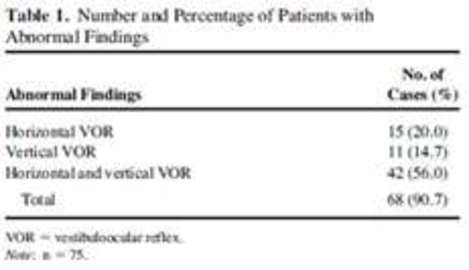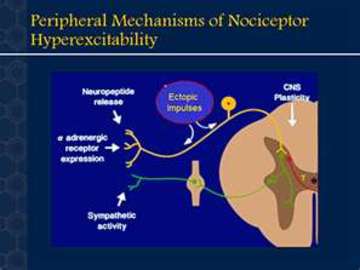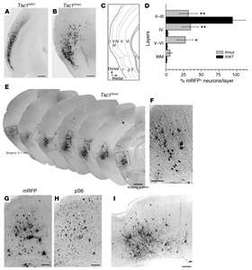Hyperexcitability Overview

Hyperexcitability is a condition or state of being unusually or excessively excitable involving most or all the reflexes. It is an excessive reaction to stimuli and is said to be a neurological disorder.
Diseases that cause Hyper-excitability

Peripheral nerve hyperexcitability (PNH) is any disorders associated with twitching spasms, spontaneous muscular activities, facial tics etc. It is a generalised term that is used to cover a wide range of disorders that shows the signs and symptoms of continuous involuntary muscle activity. Variety of names has been used to describe these symptoms. Some of these descriptive terms include neuromyotonia (NMT), benign fasciculation syndrome, cramp fasciculation syndrome, benign cramp fasciculation syndrome, Isaac’s syndrome, continuous muscle fibre activity, continuous motor nerve discharges, and undulating or generalised myokymia.
• Neuromyotonia also known as Isaac syndrome is a form of PNH that causes continuous muscle activity characterized by muscle twitching at rest, cramps and impaired muscle relaxation.
• Benign Fasciculation Syndrome another neurological disorder characterized by twitching of any voluntary muscle group but is most common in the eyelids, arms, legs and feet. Even the tongue may be affected in some cases.
• Cramp Fasciculation Syndrome, a rare peripheral nerve hyperexcitability disorder that is more severe than benign fasciculation syndrome. The disorder causes cramps, fasciculations, fatigue, muscle pain and stiffness similar to that of neuromyotonia
Symptoms and Treatments of Peripheral Nerve Hyper-excitability

The primary symptoms caused by PNH is involuntary muscle fibre activity such as twitches, cramp and cramp like feelings together with muscular aches and pains, soreness and discomfort. Some people may also experience sleep disturbance and fatigue. Excessive sweating is also observed in some patients.
The first line of treatment for peripheral nerve hyperexcitability is by the use of drugs that are anticonvulsants. This kind of drug is used in the treatment of epilepsy. It has been reported that Phenytoin and Carbamazepine drugs are successful in reducing the symptoms. Other drugs that may be prescribed are Lamotrigine or Gabapentin. Each medication acts in a different way therefore; a combination can be more beneficial to the patient.
Painkillers and or Diazepam can also be effective for relieving pain for a short time if pain is the symptom. But these drugs are not for a long term solution due to their addictive qualities.
Other forms of treatment for patients with PNH include the use of plasma exchange and steroids. Plasma exchange can show reduction in the symptoms that the patient is suffering from and this can be observed in a number of weeks. On the other hand, plasma exchange can only be used in case where the signs and symptoms are weakening. This treatment may provide short-term relief for patients.
It is said that plasma exchange causes an inhibition with the function of the voltage-dependent potassium channels, one of the basic outcome of hyper-excitability.
Coping with PNH
When diagnosed with any of the above mentioned hyperexcitability disorders, can be frustrating. The twitches and spasms, aches and pains may also cause other mental illness. The inability to talk to someone who can relate to what the patient is going through may lead to other illnesses such as depression and anxiety. If you show signs of hyper-excitability in your family, it is a must that you discuss the problem as soon as possible and seek a professional’s help.
PNH may be a life-long condition. Once you are diagnosed with this kind of disorder, the challenge is accepting and getting used to it.
Comments
Most Recent Articles
-
How To Protect Yourself From Spirilla
Bacteria, germs, pathogens, microbes, viruses, and parasites are collectively known as microorganisms. These minute living organisms cause serious waterborne diseases that may claim the live...
-
5 Most Common Genetics Diseases
There are diseases that are caused by bacteria, viruses, and other organisms that attack the body and are not defeated by the body’s antibodies. These diseases are mostly curable or tr...
-
Are Periodontal Diseases Avoidable?
Periodontal diseases or gum diseases are common mouth problems to many. The disease extends from a simple gum irritation to a more serious gum disease resulting in a great damage to soft tis...
-
How To Treat Neglected Tropical Diseases
Neglected tropical Diseases (NTD) are a group of bacterial and parasitic infections which are affecting 1 billion people. Studies show that these infections persist exclusively in the poores...
-
What Are the Symptoms Of Liver Cancer?
Hepatocellular carcinoma or liver cancer as it is commonly known arises from the liver. The human liver is composed of a number of different cell types such as bile ducts and blood vessels b...
-
Severity Of Breast Cancer
Although it can also affect men, breast cancer occurs predominately and is the most common type of cancer among women. It is a malignant tumor (a group of cancer cells) that originates from ...
-
The Most Deadly Sex Disease
Sex diseases are commonly known as sexually transmitted diseases and are popularly known as STDs. Its older term was venereal disease or VD. As it is clearly pointed out by the name, sexual...
-
What Are The Causes Of Blackleg
Sheep are the most common target of blackleg disease, also known as Clostridium chauvoei. The blackleg disease was derived from the infected part of the sheep which is usually the leg, ...
-
What You Must Know About Medical Diseases
Most people have experienced some kind of a disease before or at least at one point in life. And if you can still remember the last time you suffered from a disease and felt ill, you will re...
-
what is psittacosis?
What is psittacosis? It is one of the zoonotic infectious diseases caused by a bacterium called Chlamydophila Psittaci. Psittacosis is also called parrot fever or chlamydiosis. The name of t...
-
How To Prevent Psoriasis Skin Diseases
You might have heard of this disease before but have less or no idea of what this is all about. If you are one of those who are experiencing this type of skin disease or just want to know mo...
-
the Most Common Zoonotic Disease
You may not be familiar or would have never heard the term Zoonotic diseases, but yes they exist. These are infectious diseases transmitted from animals whether wild or domesticated, to huma...
-
What you need to know about lyme diseases
You must have heard of Lyme diseases but know not much about it. Well, this disease is caused by what is known as Borella Burgdorferi. The ones responsible for transmitting this disease are ...
-
How To Protect Yourself From Inflammatory Bowel Diseases
One type of digestive system disease or disorder is inflammatory bowel disease. Even though this disease could happen anywhere in the digestive tract, most cases show that it mostly happens ...
-
How Shigella Is Treated
Shigella is a bacterium that can cause severe diarrhea or gastroenteritis in humans. Shigella is named after a Japanese scientist named Shiga who discovered the bacteria. Shigellosis, also ...